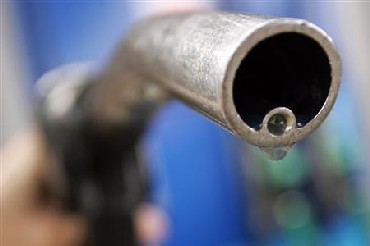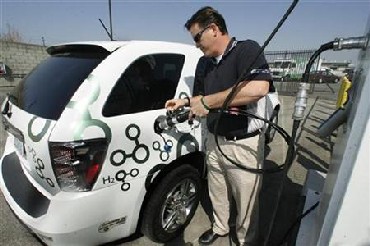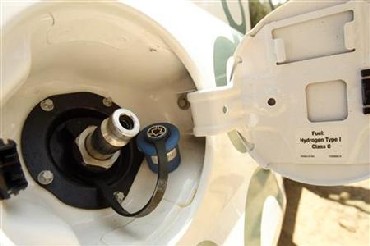 | « Back to article | Print this article |
Now, artificial petrol that may cost Rs 14 a litre!
British scientists have developed low-cost and environment-friendly "artificial petrol" which may cost around Rs 14 a litre and could be available at pumps in as early as three years.
The scientists who are refining the recipe for the new hydrogen-based fuel said it will run in existing cars and engines at the fraction of the cost of conventional petrol.
The "artificial petrol" is expected to cost around USD 1.50 a gallon or 19 pence (about Rs 14) a litre.
.Click NEXT to read more...Now, artificial petrol that may cost Rs 14 a litre!
With hydrogen at its heart rather than carbon, it will not produce any harmful emissions when burnt, making it better for the environment, as well as easier on the wallet, the Daily Mail reported.
Professor Stephen Bennington, who led the team involved in the project, said: "In some senses, hydrogen is the perfect fuel. It has three times more energy than petrol per unit of weight, and when it burns, it produces nothing but water.
"Our new hydrogen storage materials offer real potential for running cars, planes and other vehicles that currently use hydrocarbons."
Click NEXT to read more...
Now, artificial petrol that may cost Rs 14 a litre!
According to the report, the first road tests are due next year and, if all goes well, the cut-price "petrol" could be on sale in three to five years.
Energy from hydrogen can be harnessed by burning the gas or combining it with oxygen in a fuel cell to produce electricity. But current methods of storing hydrogen are expensive and not very safe.
To get round this, the team from the Rutherford Appleton Laboratory, near Oxford, University College London and Oxford University have found a way of densely packing hydrogen into tiny beads that can be poured or pumped like a liquid.
Click NEXT to read more...
Now, artificial petrol that may cost Rs 14 a litre!
Stephen Volker, of Cellar Energy, which is developing the technology, said: "We have developed micro-beads that can be used in an existing gasoline or petrol vehicle to replace oil-based fuels.
"Early indications are that the micro-beads can be used in existing vehicles without engine modification. The materials are hydrogen-based, and so when used produce no carbon emissions at the point of use, in a similar way to electric vehicles."
The scientists also noted that a tankfull of the artificial petrol, which has yet to be given a brand name, is expected to last 300 to 400 miles, in line with conventional fuel.



